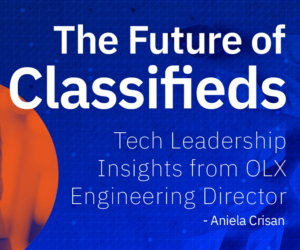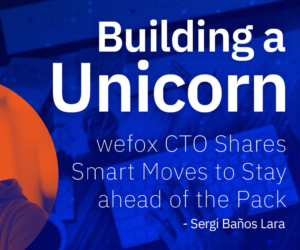That’s not me speaking – it’s Frédéric Lasnier, CEO of Pentalog. In this “unfiltered” exchange (like the cigarettes he will mention below), he explains what a real ESG policy is for him, how we must avoid “CSR-washing”, why the moral decisions we make are critical, and how those decisions structure your business.
By Cyrille de Lasteyrie, digital explorer

Cyrille: How do we know when we are really in a dynamic ESG?
Frédéric: If it doesn’t cost anything, it’s because you’re not really doing it. There must be a significant cost, otherwise it’s just PR. For example, planting a tree costs roughly €15, and if you plant a thousand, it costs you €15,000. But you do it with employees over the weekend, no one is paid, it’s a collective effort for the planet… It’s a great PR operation for you – not much when you compare it on the one hand, to the overall resources of the company, and on the other hand, to the profits it draws from the planet.
The company is in interaction with the world – it is a living organism, like the tree. It’s in this big system and depending on its size, it has revenues in the millions or even billions. And so there must be a relationship of proportionality with these magnitudes. Otherwise, it means that you are not making serious choices.
Cyrille: What are serious choices?
Frédéric: Well, for example, we decided not to work with certain sectors: tobacco companies, the world of gambling, armaments, Nazis…
Cyrille: Nazis? Yeah – that’s not very ESG…
Frédéric: You’re joking, but last year we refused to work with a very large and very nice account because its history was still too closely linked to Nazism. We know perfectly well that the people we deal with are not themselves Nazis, but there are a thousand concrete things to do in order to detach oneself from one’s past, in terms of shareholding, speaking out, symbols, etc. We talked about it among ourselves and decided to decline the deal, despite the obvious business interest. So afterwards you can also be a little less careful, accept the contract and plant 10,000 trees to give yourself a clear conscience. But that’s not what we do. Integrity is one of the five pillars* of the ESG policy we have put in place. We say it and then we do it.
Cyrille: Is it possible to calculate the shortfall from this kind of decision?
Frédéric: Yes, and we did it for 2022. Business refusals for ESG criteria cost us between 8 and 10% of turnover. We based this on the average results generally achieved in the first year of activity with clients of similar size and projects. I don’t know if you realize how big that is.
Cyrille: But you win on other values.
Frédéric: Yes. The value applied to what you get your collaborators to do. You must protect them from these questions, so that they do not one day find themselves reluctantly working on projects that make them unhappy. It is therefore also necessary to choose customers according to their relationship to the world and their visions. As a company, it’s now your duty to think beyond your boundaries, integrating the other components of the system. And it is also your duty to your employees to include them in this overall process.
Cyrille: Do you think young people think about these subjects? I am thinking, for example, of cigarettes. Not sure they see a problem there…
Frédéric: You’re right, but exactly! First of all, a good portion of “young people”, and we see it at home, are very invested in these subjects. As for the rest, someone who takes advantage of the present moment – as we did – we can think about it for them, that’s part of our job. In 20 years, when they will be confronted with the harmful effects of tobacco, it is not a bad thing to spare them the guilt of having contributed to the problem. The way in which the company produces its results is crucial – it is a compass for the activity, its decisions, its future shareholdings, and the well-being of its employees.
Cyrille: Do you need a person dedicated to the well-being of your employees?
Frédéric: If you run an organization properly, in agile mode at all levels, you don’t need an HRD or a Chief Happiness Officer. We don’t have either.
Cyrille: Here’s something: these companies that we refused to work with are completely legal. So we’re redrawing the world using our criteria. Are we placing ourselves above the laws that tolerate them?
Frédéric: I take complete responsibility. But we are not above the law, we are freely making the decisions that reflect who we are. The law is a common base, but then everyone makes their choices.
Cyrille: Is there a concrete list of prohibited sectors of activity or is it a bit of a question every time?
Frédéric: There are some non-negotiable sectors, like cigarettes, porn, gambling, weapons. Then, on a case-by-case basis, it is discussed by the Board of Directors. Anecdote: this year we agreed to work with a company that we had refused several times. But they changed enough elements of their business to fit our criteria. So it’s not a sclerotic system – it pushes everyone towards their best.
Cyrille: But does that mean that when you turn a company down, you explain all that?
Frédéric: Generally no, we’re not in the business of giving lessons, and everyone does what they can and what they want. We want to remain polite and not put pressure on them – these criteria are ours. Like the people who work in these companies, they often have nothing to do with all these questions and strategic choices. It is possible that some have never even thought of it.
Cyrille: It doesn’t always have to be easy to explain…
Frédéric: We’re getting there. However, a trickier story happened to me. A man I know, a loyal customer of Pentalog, with whom we had worked in two different companies, one day changed companies, and wanted to take us with him, as he had done previously. But his new work environment no longer met our criteria. As for him, we know he’s a great guy; but not his company. The conversation I had with him was hard and frank, but it is one of those moments in life that structure the orientation of a group, and also of a human relationship. And I have no doubt that we will work together again.
Cyrille: Thank you Frédéric, I’m going to go grab a cold one to celebrate… (joke)
- The 5 pillars of Pentalog’s mission are: well-being, integrity, environment, education, and equality.









